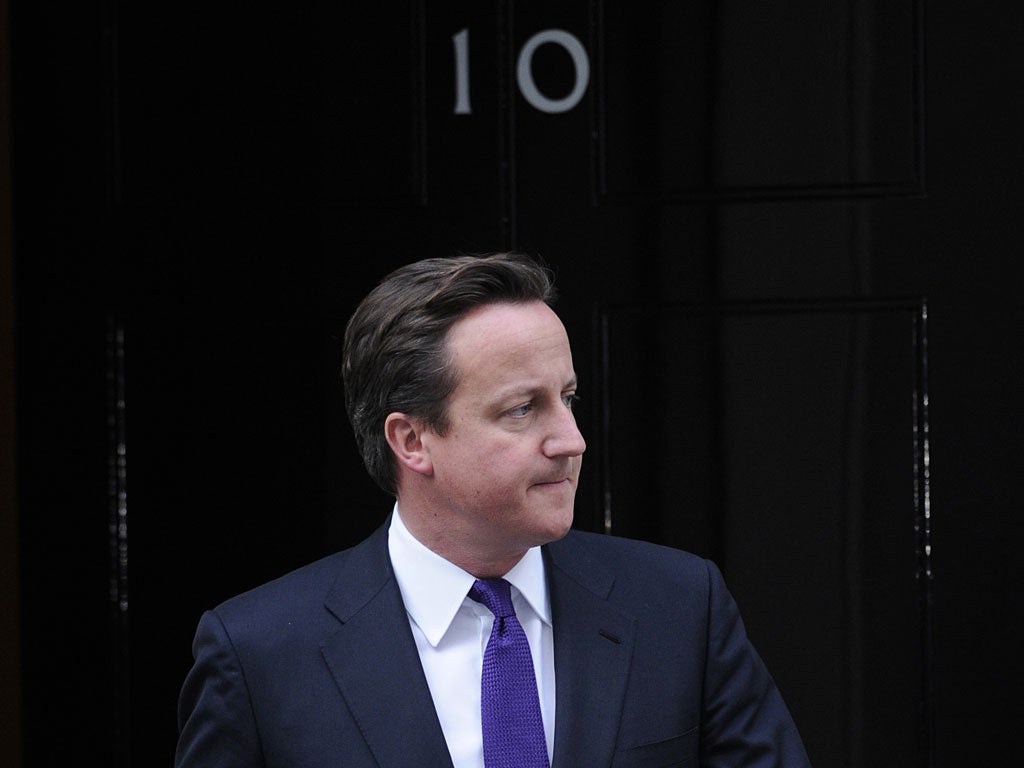Why have the Tories rejected the spirit of 2012?
The Conservatives’ new tactic is a betrayal of all that Cameron stood for when he became leader


Times may be bad, and our purses emptier than ever, but rarely can I recall a year in which our spirits have been raised so much by each other. The Queen’s Christmas message, with its evocation of the Olympics, the Paralympics, the Games Makers and the Diamond Jubilee, will have moved all but the most flint-hearted republicans.
It was the year in which we joined with strangers to feel a sense of common endeavour and celebration. Truly, as Abraham Lincoln put it, we discovered “the better angels of our nature”.
These better angels feed compassion not mean-spiritedness. They enable us to walk in another’s shoes. They promote solidarity over divisiveness. They encourage us to think the best, not the worst, of other people. At heart, they embody the Christmas spirit, though you don’t have to be Christian, or even religious, to embrace them. As we all discovered during the Olympics and Paralympics, they make us better and happier people.
How very peculiar, then, that our main governing party should be so out of tune with the times. If ever there were a moment for the Conservatives to be building the Big Society, it is now. We want to bottle the essence of 2012 and take it through to 2013. Instead, the Tories seem to have abandoned the generosity of spirit that brought them to power and are now intent on exploiting the worse angels of our nature.
You only have to look at the online ads they have launched in 60 marginal constituencies to see the nasty political game they are playing. “Who do you think this Government should be giving more support to?” is the first question on the online banner, over a backdrop of the Union flag. We then see a smiling, fair-haired, glossy family dressed in white and pale grey, superimposed with the words “Hardworking families…”, followed by a dark-haired, unshaven, scowling slacker slumped on a sofa and the words, “Or people who won’t work?”
There are undoubtedly some people who won’t work. And they shouldn’t expect to enjoy a life on benefits, subsidised by the rest of us. But this is a grossly inaccurate caricature of the majority of people who are now unemployed. Most would dearly love to find a job. There are currently 5.2 unemployed people per vacancy – so even if all of them were desperately trying to get back into work, fewer than a fifth would be successful.
Most unemployed people have been out of work for less than six months. Typically, they have been in insecure jobs, and they move in and out of employment according to the state of the economy. They are strivers, not skivers, who have suffered bad luck.
It is hard to measure how many genuine skivers there are, who simply won’t work, but the number of long-term unemployed people during good economic times gives us some clue. In 2007, before the crash, there were fewer than 200,000 long-term unemployed. Some of them were probably unemployable, ill-equipped mentally or psychologically for the world of work. But even if all fitted the “won’t work” caricature, they still made up just 0.4 per cent of the working-age population. Paying those people Jobseeker’s Allowance cost less than £800m a year, or under half of one per cent of GDP.
Now that is still £800m too much. There is a good case for saying that the long-term unemployed should do something useful in return for their benefit. Let them clean up our parks, or help schoolchildren with their reading or old people with their shopping. That would be the Big Society approach to welfare reform, and it would have the advantage of reintegrating the long-term unemployed back into mainstream society. But it would be constructive rather than punitive. Instead of castigating them for having their blinds pulled down when the rest of us are heading for work, let’s give them something to get up for in the morning.
The Tories’ new tactic is a betrayal of all that David Cameron stood for when he became leader. He wanted his party to be generous, open and tolerant. It was on this ticket that he won the leadership and on this agenda that the public gave him the benefit of the doubt in 2010. Under Cameron, voters believed, the nasty party would be buried. But now he has hired the master practitioner of divisive politics, Lynton Crosby, to run the Conservatives’ campaign, and already the Australian’s influence can be seen. Over there, Crosby targeted the “battlers”; here they are called “strivers”. But his technique is the same. Set strivers up against skivers, and trap the Labour Party into supporting the latter.
That is the thinking behind George Osborne’s Welfare Uprating Bill, which will challenge Labour to vote against a real-terms cut in welfare benefits. Actually, this cut will hit many more strivers than skivers, as it applies to in-work benefits, too. The squeezed middle will be fighting for breath.
It is political madness for Cameron to cede the spirit of 2012 to Ed Miliband. Today, the Labour leader’s New Year’s message speaks of One Nation, the Big Society, hope, values, responsibility, good people, the Olympics, and how to “harness the good of each and the good of all”. It is a message aimed at our better angels – and it is one that the Prime Minister, too, could have delivered if only he hadn’t played up to his party’s baser instincts.
Twitter: MASieghart

Join our commenting forum
Join thought-provoking conversations, follow other Independent readers and see their replies